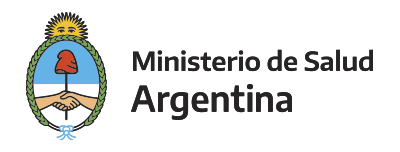Please use this identifier to cite or link to this item:
http://sgc.anlis.gob.ar/handle/123456789/1461| Title: | Comparative evaluation of 11 commercialized rapid diagnostic tests for detecting Trypanosoma cruzi antibodies in serum banks in areas of endemicity and nonendemicity | Authors: | Sánchez-Camargo, Claudia L Albajar Vinas, Pedro Wilkins, Patricia P Nieto, Javier Leiby, David A Paris, Luc Scollo, Karenina Flórez, Carolina Guzmán-Bracho, Carmen Luquetti, Alejandro O Calvo, Nidia Tadokoro, Kenji Saez-Alquezar, Amadeo Palma, Pedro Pablo Martin, Miguel Flevaud, Laurence |
Issue Date: | Jul-2014 | Journal: | Journal of clinical microbiology | Abstract: | Chagas disease is one of the main public health issues in Latin America. Increasingly during the past few decades, Trypanosoma cruzi infection has been detected in North America, Europe, and the Western Pacific, mainly as a result of population movement. The limited availability of rapid serological diagnostic tests hinders rapid diagnosis and early treatment in areas of endemicity and nonendemicity. In collaboration with 11 national reference laboratories (NRLs) from different geographical areas, we evaluated the performances of commercialized serological rapid diagnostic tests (RDT) for T. cruzi infection. Eleven commercialized T. cruzi infection RDTs were evaluated on a total of 474 samples extensively tested with at least three different techniques for Chagas disease, maintained at controlled low temperatures, and stored in the serum banks of the 11 NRLs. We measured the sensitivity, specificity, and concordance of each RDT and provided an additional questionnaire to evaluate its ease of use. The selected RDTs in this study were performed under controlled laboratory conditions. Out of the 11 RDTs, we found 8 of them to be useful, with the cassette format favored over the strip. We did not observe significant differences in RDT performances in the different regions. Overall, the performance results were lower than those disclosed by the manufacturers. The results of this evaluation validate the possibility of using RDTs to diagnose Chagas disease, thereby decreasing the time to treatment at a primary health care facility for patients who are willing to be treated. Further studies should be conducted in the laboratory and in the field to confirm these data, expressly to evaluate reproducibility in resource-limited settings, or using whole blood in clinical settings in areas of endemicity and nonendemicity. |
URI: | http://sgc.anlis.gob.ar/handle/123456789/1461 | DOI: | 10.1128/JCM.00144-14 |
| Appears in Collections: | Publicaciones INP |
Files in This Item:
| File | Description | Size | Format | |
|---|---|---|---|---|
| zjm2506.pdf | Artículo en inglés | 390.65 kB | Adobe PDF |  View/Open |
Page view(s)
130
checked on Jan 29, 2026
Download(s)
49
checked on Jan 29, 2026
Google ScholarTM
Check
Altmetric
Altmetric
Items in DSpace are protected by copyright, with all rights reserved, unless otherwise indicated.

